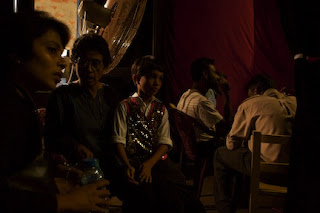





Photography takes me to great people and amazing places. Am grateful. Chandrasena is married and is a father of two daughters. His ancestors lived in Bambaragasyaya (Ella) for generations. Electricity was a problem as it was a difficult terrain. Bambaragasyaya is blessed with pristine water streams and a small fall. Villagers make their livelihood on agriculture – mainly paddy cultivated with water from the fall. Still there are remains of a wooden anicut built by his ancestors. Being acutely aware of the need to preserve water, Chandrasena started a campaign of forest re-plantation using native plants. He had the chance of meeting a gentleman who mooted the idea to build a micro hydro power plant. That was the beginning. Chandrasena went ahead with organising to form a society : Bambaragayaya Swashakti Viduli Sangamaya. Members of the society were villagers. They managed to obtain recognition for it and to secure funds from UNDP (larger portion) and the Provincial Council. The Society’s contribution was by way of labour. Work commenced in 2003. Distribution of power began in 2005. The power plant now generates 9.5 killo watts of 230 volts electricity through out the day. Thirty eight families are served by the plant. Members pay a flat rate of Rs 200 (approx USD 2) per month for their electricity usage, which is not metered. Those who do not use appliances like refrigerators pay only Rs 150 (approx USD 1.5). There are around 5 families of this category. The contribution by members comes to around Rs 7000 (approx USD 70) per month and of it Rs 5000 (USD 50) goes to the society's savings account while the other Rs 2000 (approx USD 20) is for maintenace and Chandrasena’s caretaker fee. “We have all the more reason to look after the forest up there now” Chandrasena told me.
.........................................................................
Energy in Sri Lanka
Sri Lanka has a population of 19 million people, of whom approximately 75 per cent live in rural areas. It is estimated that only about 54 per cent of the population has access to electricity, meaning that around 2 million households lack access to electricity from the grid. The household electrification rate in Sri Lanka ranges from 28 per cent to 36 per cent despite the fact that rural electrification programmes began over half a century ago. Meanwhile, power demand in Sri Lanka is growing at over 8 per cent per year and the central electricity board is unlikely to be able to keep up with demand. There are 300,000 off-grid households who use power from car batteries that are charged from grid supplies, and this gives some indication of the large amount of unmet demand for electricity. The use of traditional
grid-based approaches to meet the rural electricity demand has become increasingly expensive as lines are extended to dispersed populations and fossil fuel costs have continued to increase.
(courtesy : Series 5: Programme 9 (of 9) - 'A Switch in Time' by www.tve.org)



















